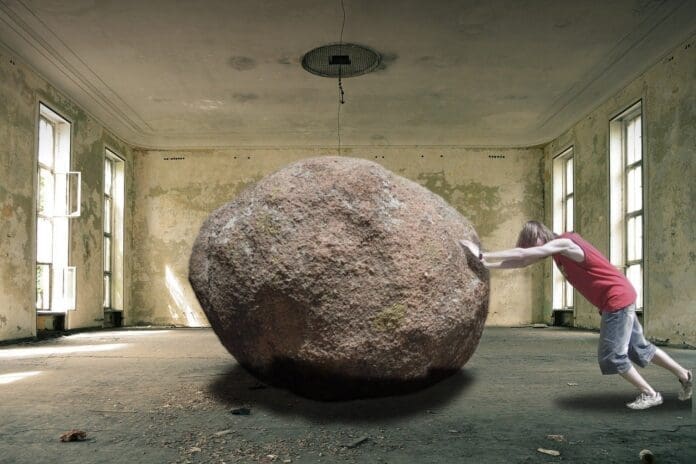I have been working tirelessly for months to protect the expanded Child Tax Credit and other parts of Build Back Better, such as paid family leave and child care. I’m an economic justice organizer, and all of these are important to building an infrastructure of care that will allow us to participate in the workforce while caring for ourselves and our families. Working shouldn’t make our lives harder.
As with all talk of income equity, there are people who strongly support it and people who strongly oppose it. I expect the push back from the government because that’s what they do, but it’s the pushback from the people struggling that blows my mind. We have fallen victim to oppression and would rather see harm come to our neighbors than stand up to the government.
The biggest argument against the expanded Child Tax Credit that I’ve seen is the “I’ve worked for everything I have and so should they” base. These types of statements are usually followed with a declaration that they’ve worked their asses off and they shouldn’t financially support someone else who won’t. What I’ve noticed is that the people saying these things usually come off disgruntled and exhausted. Rightfully so, I guess, because working your ass off doesn’t even sound enjoyable.
I used to be one of those people who felt as if I was a better person because I was juggling three jobs and raising a family by myself with no help from anyone. I never explored whether I qualified for safety net programs because I didn’t want to give away one ounce of my stubborn independence. I wasn’t going to be “one of those people” who lived off the system. And then I had to quit my full-time job due to an injury.
Suddenly, I needed help. Living paycheck to paycheck didn’t provide much in the way of savings so I had no nest egg to fall back on. I went back to college because an education was the way out. When I learned that someone close to me was receiving SNAP with no children, it made me madder than hell. My pride was allowing them to eat better than my kids.
Once I started becoming involved with social justice organizations, I began to realize that I didn’t know much about the way things worked. I never paid attention to the fact that we were made to work so hard for so little by our government’s policies and decisions. And I had never before been told that it didn’t have to be that way.
As I began traveling and talking to people, I realized that West Virginians in so many fields had paid for college degrees and specializations that landed them jobs with wages barely above minimum wage and the poverty line. Educated adults were stuck in this gray area between receiving assistance and standing in food pantry lines. This really hit home for me when I qualified for a $0-$5 a month payment on my student loans after graduation. I realized that our government knew we couldn’t find work that paid a living wage so they gave us charity and made it seem like they were doing us a favor.
My biggest struggle was an internal one because I was fighting my pride. I didn’t want to raise my kids on food stamps. I was raised by a mom who worked two and three jobs back in the day when associate’s degrees were worth something. I thought everyone worked that hard because most people I knew personally did; working myself to death was the norm I was raised with. The only thing that had changed as an adult was that Bachelor’s degrees were now required and we were still working ourselves to death and not getting anywhere.
Nowadays, when I read or hear people talking about how they don’t support this or that because they worked and struggled their whole life, and, in turn, expect everyone around them to do the same, it hits differently. I no longer see it as a feat deserving of a badge of honor but almost as a cry of desperation. There’s no honor in working ourselves to death and having nothing to show for it. There’s no honor in squeezing our food budget because we’ve been laid off or injured and are too full of pride to apply for SNAP benefits. We’re not leading successful lives if we can’t stop hustling long enough to enjoy those lives.
We didn’t create this cycle of inequity but we can work together to throw a wrench in the cog. It takes zero courage to fight our neighbors and an army to dismantle a system of oppression. We’ll all benefit a lot more by fighting the right battle.
Onward,
Amy Jo


